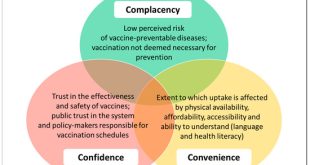Here’s a look at the latest happenings in the world of international employment. From shifting visa regulations to emerging job markets and evolving workplace cultures, staying informed is crucial for both employers and professionals navigating the global landscape. This update covers key developments, trends, and opportunities that are shaping the future of work across borders.
Global Economic Outlook and Its Impact on Hiring
Economic Growth in Key Regions
The global economy’s been a bit of a rollercoaster, hasn’t it? But, let’s zoom in on some bright spots. Asia-Pacific, for instance, has shown some impressive growth, particularly in countries like India and Vietnam. This, naturally, leads to more companies setting up shop there and needing to hire local talent, as well as expats. Europe, while facing some headwinds, still sees pockets of growth, especially in tech hubs like Berlin and Amsterdam. And North America? Well, it’s a mixed bag, but the US continues to be a major player in driving global hiring, particularly in specialized sectors. You’ve got to wonder if this growth is sustainable though, right?
Recession Concerns and Workforce Adjustments
Okay, so it’s not all sunshine and rainbows. The “R” word – recession – has been floating around a lot lately, and some companies are definitely feeling the pinch. We’re seeing workforce adjustments (a polite way of saying layoffs, aren’t we?) in certain sectors. Companies are becoming more cautious, prioritizing efficiency, and often freezing hiring or focusing on critical roles only. This means you might need to sharpen your skills or explore different industries to stay competitive. Or maybe I’m just being overly pessimistic? What do you think?
Visa and Immigration Policy Changes
Updates on Visa Regulations in Major Countries
Visa regulations are like the weather – constantly changing and sometimes unpredictable! In the US, there have been ongoing debates about H-1B visas and immigration reform, creating uncertainty for many international workers. The UK, post-Brexit, has its own set of rules, favoring skilled workers in specific sectors. Canada remains a popular destination, with various programs aimed at attracting skilled immigrants, but competition is fierce. And Australia? Well, they’ve tightened some requirements but still need talent in areas like healthcare and engineering. It’s a lot to keep track of, isn’t it? Feels like you need a lawyer just to understand the basics!
Impact on International Talent Mobility
So, how do all these policy changes affect you, the international job seeker or employer? Well, it can make things trickier, no doubt. Companies might find it harder (and more expensive) to bring in talent from overseas. Individuals might face longer wait times and more stringent requirements. It’s definitely impacting talent mobility, forcing both companies and individuals to be more strategic and adaptable. Are we going to see more people staying put, or will the lure of international opportunities still win out? Only time will tell, I guess.
Emerging Job Markets and Skills in Demand
High-Growth Industries Globally
If you’re looking for where the action is, keep an eye on these sectors: renewable energy (hello, solar and wind!), artificial intelligence (because robots are taking over, right?), and cybersecurity (protecting us from those pesky hackers). These industries are booming worldwide, creating tons of new jobs. And what skills do you need? Think data science, AI ethics, sustainable energy management, and, of course, anything related to keeping our digital lives safe and sound. Maybe I should retrain as a cybersecurity expert… sounds lucrative!
Regional Job Market Spotlights
Let’s zoom in on a few hotspots. Ireland is a magnet for tech companies, creating lots of opportunities in software development and IT. Singapore continues to be a thriving hub for finance and technology in Southeast Asia. And Germany? Well, their manufacturing sector is still strong, needing skilled engineers and technicians. Each region has its own unique strengths and opportunities, so do your research and see where your skills fit best. Makes you want to pack your bags and move, doesn’t it?
Remote Work and Global Teams
The Evolution of Remote Work Policies
Remember when remote work was a “nice-to-have”? Now it’s practically a necessity! Companies are still figuring out the best approach, with many leaning towards hybrid models – a mix of office and home. But managing remote teams across different time zones and cultures? That’s a whole other challenge. Are companies getting it right, or are we still in the “learning by doing” phase? I suspect it’s a bit of both!
Best Practices for Managing International Teams
If you’re managing an international team, communication is key. I mean, really key! Use clear and concise language, be mindful of cultural differences, and encourage open dialogue. Invest in tools that facilitate collaboration, and don’t forget the importance of regular check-ins to keep everyone aligned and motivated. Oh, and be patient! Building trust and rapport takes time, especially when you’re not all in the same room. I remember once trying to explain a joke to my team in Japan… it didn’t go well. Cultural sensitivity saves the day!
Salary Trends and Compensation Packages
Global Salary Benchmarks
Let’s talk money! Salaries vary wildly depending on the region, industry, and your level of experience. In general, tech roles in the US and Switzerland tend to pay the most, while some emerging markets offer lower base salaries but higher growth potential. Do your homework, use online salary tools, and negotiate what you’re worth! Don’t be afraid to ask for what you deserve. What’s the point of international work without good rewards, right?
Cost of Living Adjustments and Expatriate Packages
Moving to a new country? Don’t just look at the salary; consider the cost of living! Cities like London and New York are notoriously expensive, so you’ll need a hefty compensation package to maintain a similar standard of living. Expatriate packages often include housing allowances, healthcare benefits, and even school fees for your kids. Make sure you understand all the details before you sign on the dotted line. Otherwise, you might end up living like a student again, even with a fancy new job.
Legal and Compliance Considerations
Staying Compliant with International Labor Laws
This is where things get serious. International labor laws are complex and vary from country to country. Employment contracts, working hours, termination procedures – you need to be aware of the local regulations to avoid legal trouble. Don’t just assume that what works in your home country will fly elsewhere. Ignorance is not bliss when it comes to the law! I mean, who wants to end up in a courtroom in a foreign land? Not me!
Data Protection and Privacy Regulations
GDPR, CCPA, and a whole host of other acronyms – data protection and privacy are a big deal. If you’re handling personal data of employees or customers, you need to comply with the relevant regulations. This means having proper data security measures in place, obtaining consent for data processing, and respecting individuals’ rights to access and delete their data. It’s a data-driven world, but the rules are getting more and more intricate. It’s like navigating a minefield!
So, that’s the quick rundown of the latest international employment news. Sounds like a lot to keep up with? Well, it is! But hopefully, this gives you a good starting point. Whether you’re a seasoned global nomad or just starting to think about working abroad, staying informed is your best bet. Now, go forth and conquer the world… or at least find a job you love somewhere interesting! Maybe you can share your own experiences? I’d love to hear them!
 Cloudabouts
Cloudabouts




